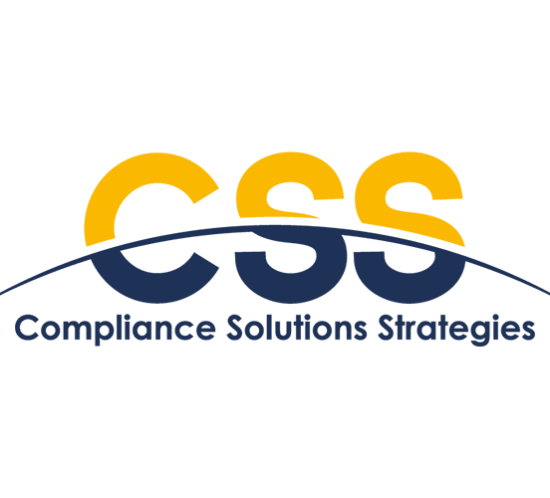In the News Post: Standard Disclosures Make Compliance Easier: Confluence
Clear rules for standard disclosures make compliance easier for ESG and private funds, said Todd Moyer, president and chief operating officer of Confluence.
Read the interviewShareholder Rights Directive
For investors tracking their shareholder identification obligations required by EU issuers under SRD2: Note that ESMA and the EBA have published their joint assessment of SRD2’s implementation, following ESMA’s Call for Evidence in 2022 and the EBA’s own consultations. In their joint Report ESMA and the EBA took stock of stakeholder concerns, and addressed various SRD2 provisions including those relating to proxy advisors, the definition of “shareholder”, shareholder identification, transmission of information, the facilitation of shareholder rights, and intermediary practices.
Regarding SRD2’s shareholder identification thresholds – set by each Member State from 0% to 0.5% of issuer outstanding shares, and above which investors holding such amount are subject to being identified by issuers located in the Member State – the joint Report does not propose any legislative changes. (Instead, ESMA and the EBA encourage the Commission to further investigate how the thresholds affect shareholder engagement before considering any changes.)
Next steps: the European Commission will consider the joint Report, and then report to the European Parliament and Council on any suggested legislative changes to SRD2.
For more industry perspective on how SRD2 could change — possibly as an “SRD3” – see our Greg Hotaling’s interview with Asset Servicing Times earlier this year.
Navigating the Next Market Downturn at TSAM London
Author:
Aspasia Latsi,
International Regulatory Analyst
Now that the TSAM – the Summit for Asset Management in London – is over, it is time to look back and delve into the subject of market downturns, as discussed during the regulatory roundtable “Navigating the next market downturn,” which was part of the Confluence-sponsored Regulatory & Compliance stream.
Given that the two-day conference brought together industry leaders, it provided a first-hand opportunity to discuss the regulatory landscape and, more precisely, the ever-topical issue of the market downturns in the aftermath of the Covid-19 outbreak. Several recent regulatory developments provided fuel for the thought-provoking discussion. Seated at the table were professionals from diverse financial backgrounds, open to sharing their insights and ideas. So, what were the main takeaways from this conversation?
There is always going to be a next market downturn.
No matter what measures are taken, downturns cannot be prevented. They appear in the form of financial crises, new pandemics, wars, and even environmental disasters. The aforementioned situations could affect the financial markets and result in added measures from the competent authorities. Because market downturns cannot always be foreseen, we could at least pay attention to the common elements they potentially share. One example worth looking into is the public reporting of large security-based swap positions (SBSs) which has retained its relevance to date since the 2008 financial crisis. At that time, SBSs played a role in that crisis and, yet again, in the recent crisis followed by the Archegos Capital Management collapse. This led to the proposed new SEC (Securities and Exchange Commision) Rule 10b-1 regarding the reporting of SBSs positions by the SEC in the US . Yet, despite the different types of financial downturns, there might be a pattern in certain circumstances, and lessons can be learned from past experiences.
How do regulators react in such circumstances?
It has been highlighted that regulators and the competent authorities in general are getting stricter and stricter by producing more complex legislation. TSAM attendees expressed the view that the authorities should act in a prompt and preventive manner rather than attempt to resolve the issues raised at a later stage.
The Covid-19 outbreak is a good example of how regulators reacted. In the European Union, the European Securities and Markets Authority (ESMA), temporarily lowered the reporting threshold from 0.2% to 0.1% under the Short Selling Regulation in response to the pandemic. ESMA assessed the outcome of that temporary measure and decided to permanently lower the reporting threshold to address potential negative effects on financial stability. Should there be ample evidence that the temporary measures are beneficial, the regulation will be amended.
What could the firms change / do differently?
Many firms already have their own in-house processes in place, as was also noted by the roundtable attendees. Alternatively, asset managers cooperate with third-party vendors, such as legal content providers and RegTech companies, when they opt for outsourcing solutions. To deal with the next market downturn, roundtable participants echoed that they would ensure they have the right processes in place, as well as make sure their regulatory / compliance / risk teams react quickly and efficiently to these crises. As a general comment, it was stated that top-level Subject-Matter Experts are hard to find, and outsourcing could be an appropriate solution when coping with financial downturns, as oftentimes third-party vendors specializing in niche areas employ such professionals.
Overall, TSAM London granted the opportunity to industry leaders in the asset management field to exchange ideas and gain insights, but also in relation to the way regulators and market players react to the challenging impacts of downturns. The lively and genuine dialogue aimed to contribute to the understanding and preparation of the asset managers in such situations and we can say that it was a step in the right direction towards fulfilling these requirements.
Contact usIn the news: Confluence’s Compliance Solutions Function Honored on CyberTech 100 List
Pittsburgh, PA, July 19, 2023 – Confluence Technologies, Inc. (“Confluence”), a global technology solutions provider helping the investment management industry solve complex investment data challenges is proud to announce its inclusion in this year’s CyberTech 100 annual list which recognizes the world’s most innovative CyberTech companies.
Compliance Solutions Strategies (CSS), Confluence’s RegTech arm, was named a leading solutions provider to financial institutions across several compliance disciplines. Confluence’s comprehensive suite of solutions includes the implementation and maintenance of cybersecurity policies and procedures, security awareness training led by CSS experts, security penetration testing, dark web monitoring and cybersecurity gap analysis. CSS clients can employ a cybersecurity solution tailored to their needs and improve several compliance functions including fund reporting, transaction reporting, investment monitoring, and compliance management. Inclusion on this list is a testament to the company’s innovative use of technology to solve significant industry problems and generate efficient, cost-saving improvements across the value chain.
Mark Evans, CEO of Confluence, said:
“We are thrilled to be included in the prestigious CyberTech 100 list, this recognition reinforces our commitment to innovation and excellence in providing best-in-class compliance solutions to our clients. As the regulatory landscape becomes increasingly complex and cybersecurity threats continue to evolve, CSS remains at the forefront, empowering organizations to meet their compliance obligations confidently.”
The CyberTech sector is projected to experience significant growth in a rapidly evolving market due to digital challenges. Between 2023 and 2030, the industry is predicted to grow by 13.8%, from $172.3bn to $424.9bn.
In the News: Traders Magazine: Buy Side Firms Face Reconciliation Challenges
Todd Moyer, Confluence’s President and Chief Operating Officer, recently sat down with Traders Magazine to discuss data and reconciliation challenges buy side firms face and how AI may be the solution to these challenges and more.
Read the interviewIn the News: WatersTechnology: Confluence Technologies looks to AI for reconciliation challenges
Confluence’s President and COO, Todd Moyer, and CTO, Chris Evans, recently spoke with WatersTechnology on the announcement of our new solution, Unity Rex, which leverages AI to solve challenges stemming from the Securities and Exchange Commission’s (SEC’s) Tailored Shareholder Reports (TSRs).
Read the full article Learn more about Unity Rex








